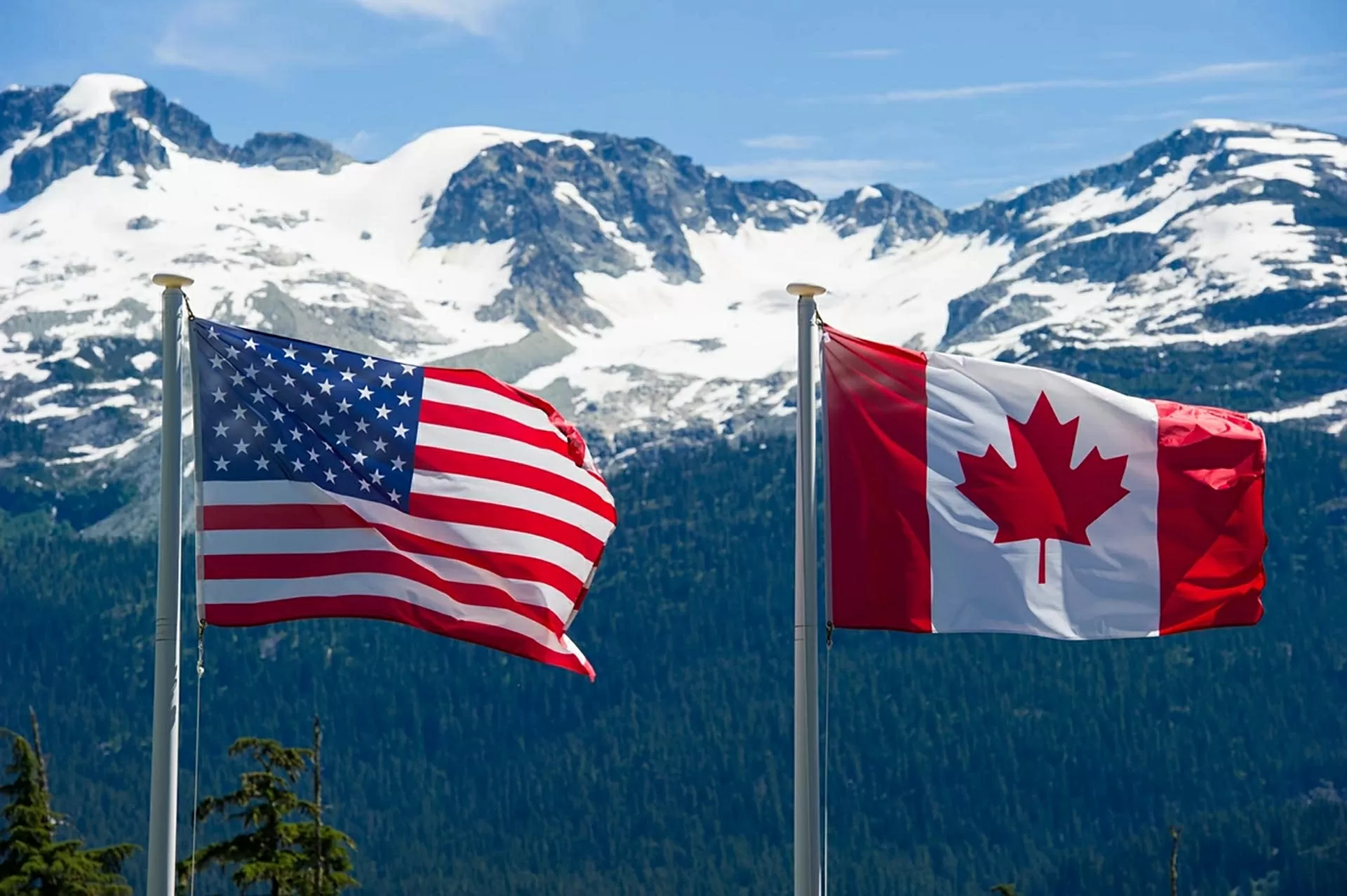President Donald Trump's recent tariffs and Ottawa's retaliation are testing the close US-Canada neighborly relationship.
 |
| President Trump's tariff approach has caused unprecedented tension in the US-Canada relationship. Illustrative photo. (Source: TGL.CO) |
The United States and Canada are important economic partners. In 2024, Canada accounted for nearly 13% of total US imports, with oil and gas accounting for 60%. In turn, US goods accounted for 50% of Canada's imports. The US is currently the largest investor in Canada, while Ottawa is the leading energy supplier to the world's number one economy.
Interdependence
In addition to economic interdependence, the United States and Canada share similar cultures, legal systems, and infrastructure, such as ports, railways, and bridges. The two countries have built more projects, such as the Gordie Howe International Suspension Bridge between Windsor and Detroit, which will boost bilateral trade when it opens this year.
According to statistics, about 400,000 people cross the border between the two countries every day. Western Canadians even go to Seattle (USA) more than to Toronto.
The tit-for-tat escalation of tariffs is highlighting the complexity of trade relations, as both economies are deeply interdependent. In a statement, Bank of Canada Governor Tiff Macklem said that a prolonged tariff war between the US and Canada could reduce the country’s GDP by nearly 3% and “wipe out growth” within two years.
Some economists say Canada's retaliatory tariffs are making matters worse, weighing on the economy and fueling inflation, while doing little to stop Washington's move.
Where will the relationship go?
Speaking to Foreign Policy about the US president’s tariffs and the potential damage to cross-border economic relations, Martine Biron, head of international relations for the Quebec region, said that this is a strange time in economic relations with the US: “The weather is gloomy. There are dark clouds in the sky. And it’s been a long time since there have been dark clouds like this.”
Ms. Biron shared that this time is difficult, mainly because everything is uncertain, with difficult to determine "status lines" from the head of the White House.
But Canadians need to focus on facts, not tweets, says Martine Biron, because “there are tweets that say one thing, and then there’s another.”
When asked about her predictions for the future, she still believes in the “ally, friend” relationship between the US and Canada to continue doing business in a healthy environment. Because they cooperate not only for the benefit of Canada alone.
Still, it’s hard to know what will happen next. Right now, the friendly relationship Ottawa has always had with the Americans is becoming more transactional, colder.
Quebec’s international relations minister said that if tariffs or other restrictions put pressure on bilateral relations, both the US and Canada would face a difficult period. She stressed that no one wants inflation, unemployment or recession.
North American Economic Union
Without making any firm predictions about the future of the relationship, Ms. Martine Biron mentioned the expected revision of the United States-Mexico-Canada Free Trade Agreement (USMCA) in 2026. At that time, the three important partners will sit down to see what is happening, what President Trump wants and how this partnership can be managed.
Meanwhile, according to expert Nouriel Roubini, Professor Emeritus of the Stern School of Business at New York University, Canada, Mexico and the United States should start drafting a plan for a North American Economic Union, to resolve current tensions.
Currently, relations between the US and its neighbors are tense, with demands from President Trump on immigration and drug control, and criticism of trade surpluses and unfair trade policies.
To mitigate these conflicts, in a recent article on Project Syndicate, Professor Roubini proposed building a North American economic union that would be free not only in trade of goods, but also in services, capital, labor, and technology.
This would require Mexico and Canada to align their industrial policies with the United States and to unify their trade, technology, and financial policies. But Prof. Roubini believes it is possible to address both current trade and political tensions while also boosting regional growth and well-being. The alliance would create a single market for goods, services, labor, technology, data, and information, offering greater benefits than existing agreements like the USMCA.
The union could also include a fixed exchange rate regime and a monetary union, similar to the Eurozone, which would help reduce the stress of exchange rate fluctuations. A common banking system and capital markets would also help share risks and manage issues such as drugs and migration. In the long term, if all parties agree, there could be a political union similar to the European Union (EU).
Professor Nouriel Roubini analyzed that without such an alliance, the growth potential of Canada and Mexico would be limited, while the US would continue to dominate in technology. Meanwhile, the North American Economic Union would take advantage of the special advantages of each country. Canada has rich natural resources, the US has strong technology and capital, and Mexico has a cheap labor force. Such an alliance would not only solve current problems but also help the region grow more sustainably and stably.
The Canadian economy has just endured a difficult 2024 and continues to face many challenges ahead, with cautious consumers, hesitant businesses, restrictive governments and trade uncertainties.
In the context of changes in the Canadian government, Justin Trudeau resigned and new Prime Minister Mark Carney called for an early election on April 28, citing the need for a stronger government to deal with the threat from the White House. Observers said that this early election is essentially a referendum on how Canada should respond to Mr. Trump's foreign policy.
Canada will welcome a new government in the spring. Let’s see what foreign policy will be formed, how the Trump administration welcomes the new government in Ottawa… Hopefully, “favourable weather” and wise decisions from the new government will bring Canada a brighter situation.
Source: https://baoquocte.vn/cach-canada-song-tot-ben-canh-nguoi-khong-lo-308995.html


![[Photo] General Secretary To Lam receives Japanese Ambassador to Vietnam Ito Naoki](https://vstatic.vietnam.vn/vietnam/resource/IMAGE/2025/4/3/3a5d233bc09d4928ac9bfed97674be98)

![[Photo] Ho Chi Minh City speeds up sidewalk repair work before April 30 holiday](https://vstatic.vietnam.vn/vietnam/resource/IMAGE/2025/4/3/17f78833a36f4ba5a9bae215703da710)
![[Photo] Prime Minister Pham Minh Chinh chairs the first meeting of the Steering Committee on Regional and International Financial Centers](https://vstatic.vietnam.vn/vietnam/resource/IMAGE/2025/4/3/47dc687989d4479d95a1dce4466edd32)
![[Photo] A brief moment of rest for the rescue force of the Vietnam People's Army](https://vstatic.vietnam.vn/vietnam/resource/IMAGE/2025/4/3/a2c91fa05dc04293a4b64cfd27ed4dbe)
![[Photo] Prime Minister Pham Minh Chinh chairs meeting after US announces reciprocal tariffs](https://vstatic.vietnam.vn/vietnam/resource/IMAGE/2025/4/3/ee90a2786c0a45d7868de039cef4a712)



















































































Comment (0)